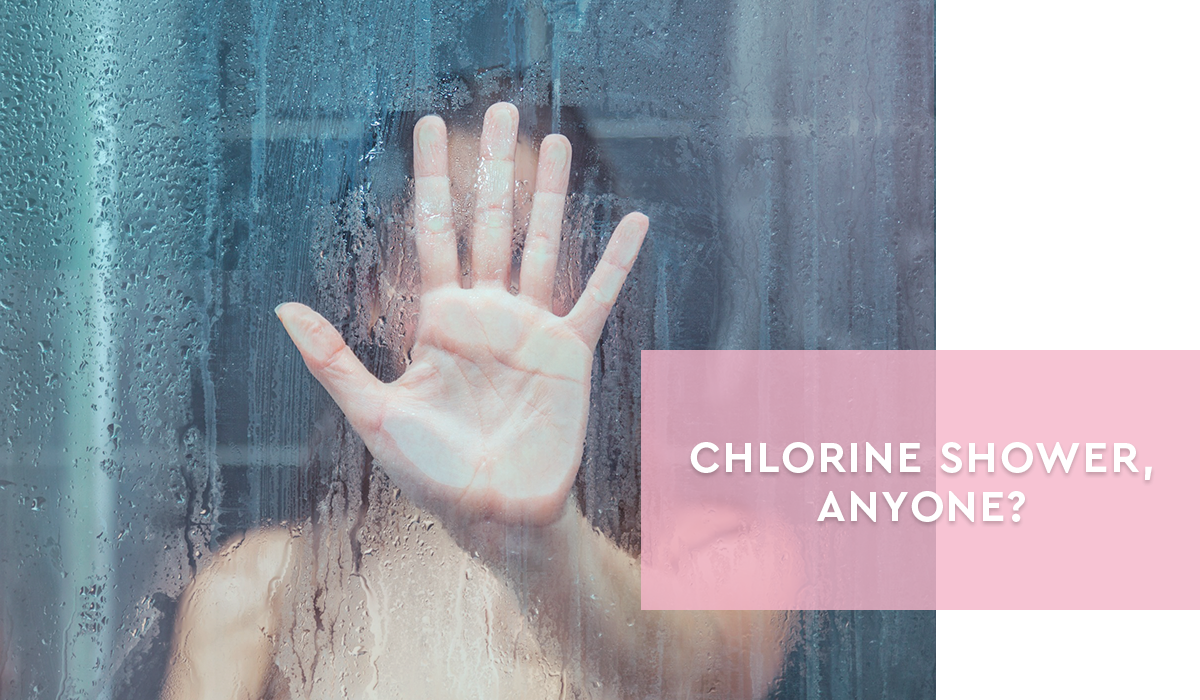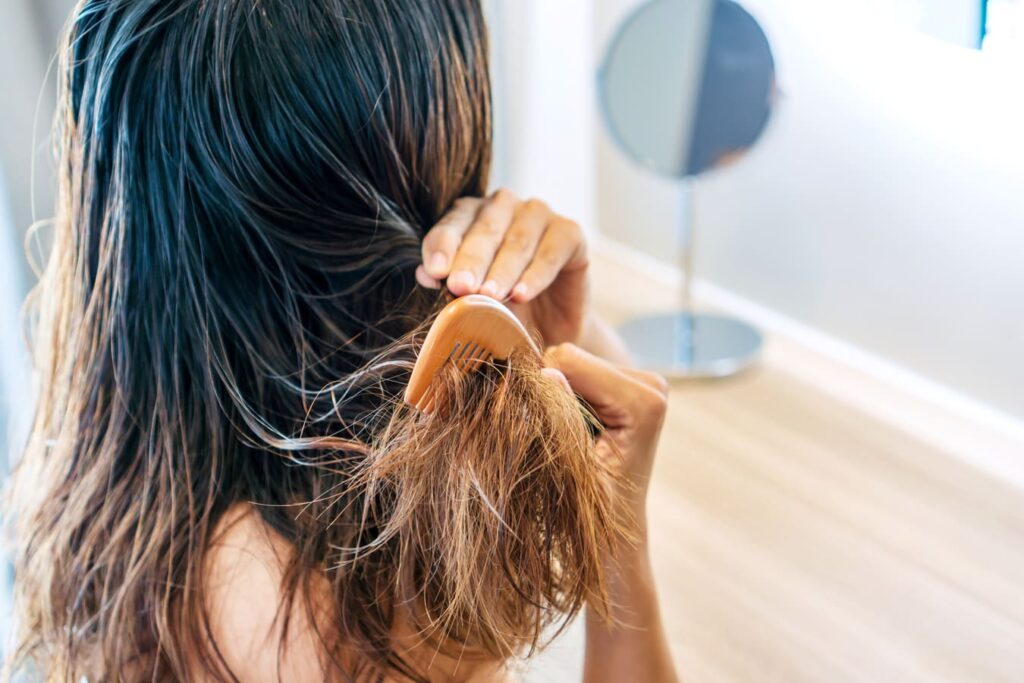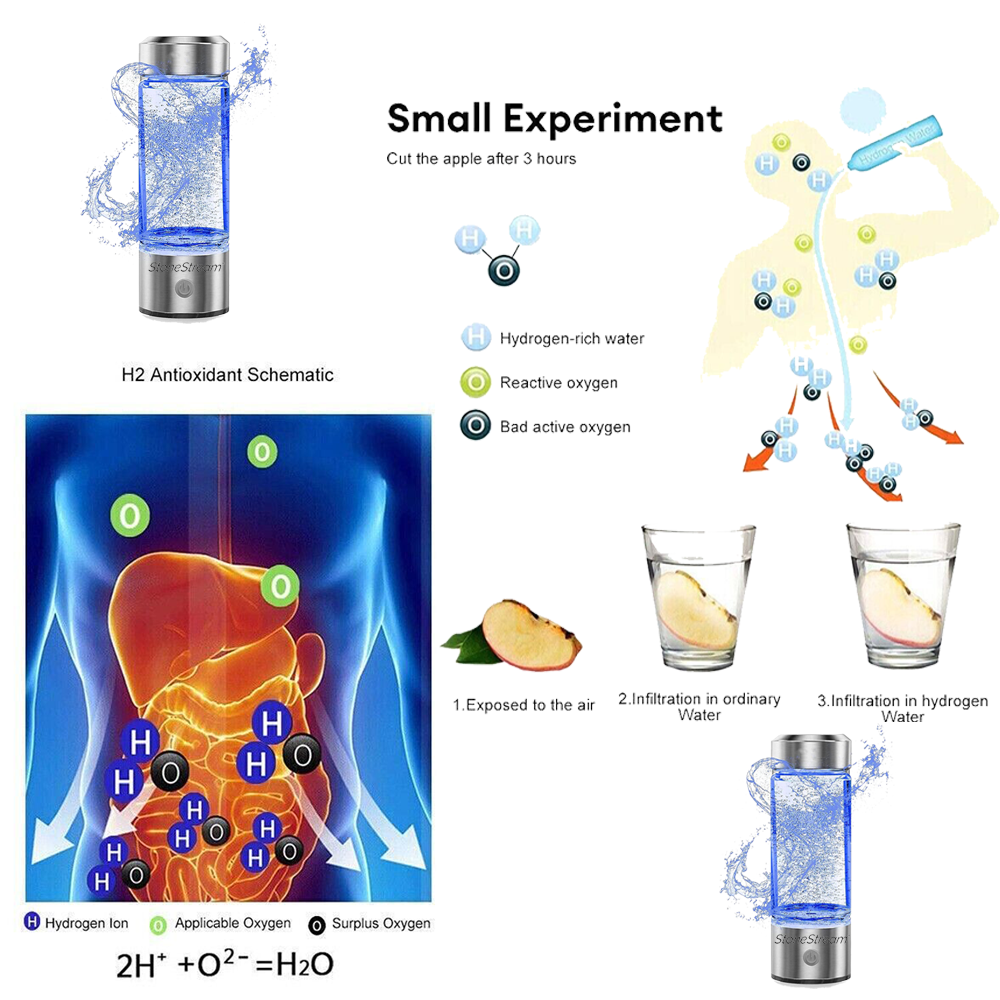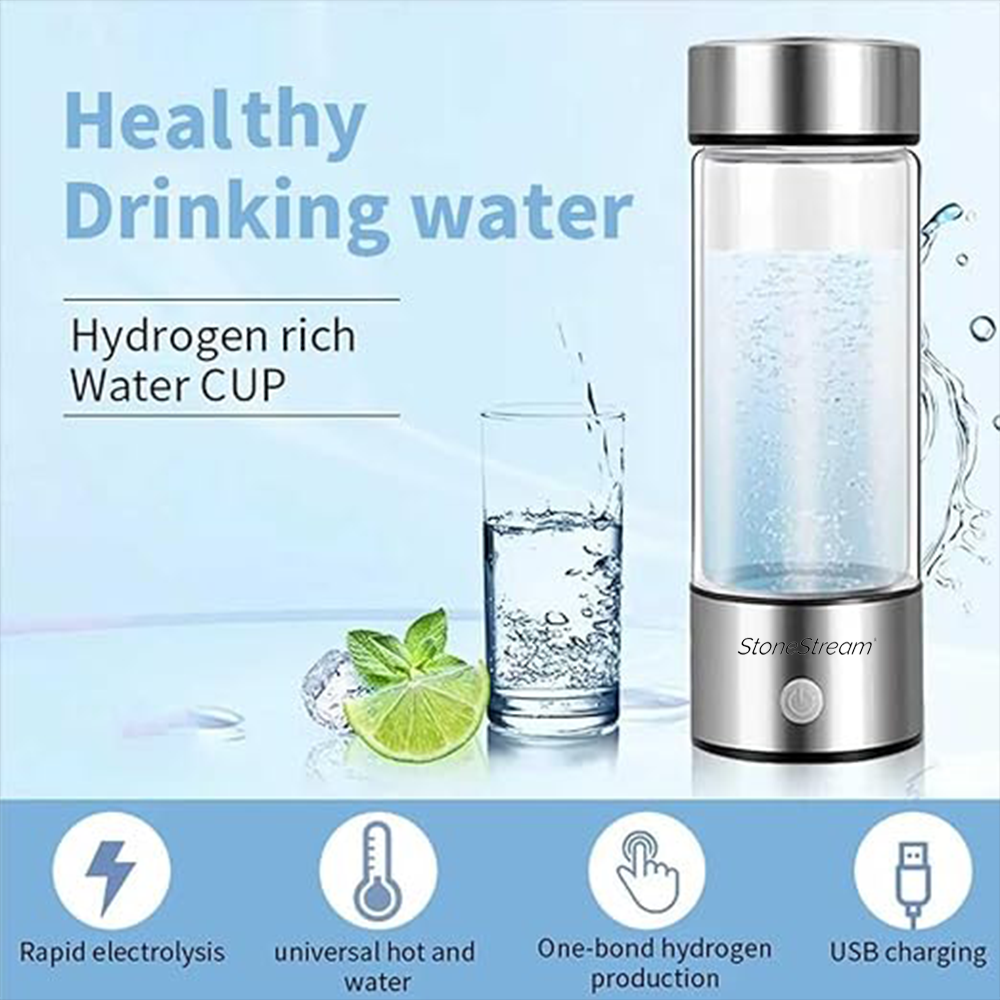Picture this: You are in your shower, trying to wash away the day’s stress with a nice, warm shower, and suddenly, you don’t feel so unstressed anymore. Can’t blame you for trying, but what might be the problem with this? Looks like your shower waters in for a checkup. After a close inspection, you found your shower party contains an uninvited guest - Chlorine.
So, what’s there to know about chlorine in the first place? Is it such a bad thing in our shower routine? Looks like you’re in for a treat, as in this blog, we are about to delve into everything you need to know about chlorine in shower water.
Chlorine - The Uninvited Guest
So, what is chlorine, and how is it added to the regular tap or shower water in our home? Chlorine is a chemical element widely used in water treatment plants as a disinfectant. Its ability to kill harmful microorganisms makes it a crucial component in maintaining public health.
Chlorine is introduced into our water supply during the treatment process. Water treatment plants add chlorine to kill bacteria, viruses, and other pathogens. This ensures that the water is safe to drink by the time it reaches our taps. So even though the intent was good, chlorine is affecting our lives in much worse ways than you think!
Impact of Chlorine on our Daily lives
While chlorine is the perfect answer for bacteria in our shower water, it has significant consequences for our overall health and skin, some of them are:
Skin and Hair Irritation:
Chlorine is a powerful disinfectant but can also be harsh on our skin and hair. When we shower in water treated with chlorine, it can strip away the natural oils that keep our skin and hair moisturised. This can lead to dryness, itchiness, and, in some cases, even redness or irritation. For individuals with sensitive skin, the effects can be particularly pronounced. So the next time you wonder if chlorine causes hair loss or skin problems, the answer is definitely yes!
Respiratory Issues:
Inhaling chlorine vapours, especially in warm or hot showers, can lead to respiratory problems. This is because the heat causes the chlorine to evaporate, creating a steam filled with chlorine gas. For people with pre-existing respiratory conditions like asthma, this can exacerbate symptoms and potentially lead to breathing difficulties. Even for those without such conditions, prolonged exposure to chlorine vapour can cause discomfort and irritation in the throat and lungs.
Disruption of Beneficial Microbes:
Our skin is home to a delicate balance of beneficial microorganisms that help maintain healthy skin. These microbes play a crucial role in protecting against harmful bacteria and supporting our skin's natural defences. However, chlorine doesn't discriminate between harmful and beneficial bacteria. When it comes into contact with our skin, it can disrupt this natural microbiome, potentially leading to imbalances that affect skin health.
Eyes and Mucous Membrane Irritation:
When chlorine-contaminated water comes into contact with our eyes or mucous membranes (such as in the nose and throat), it can cause irritation and discomfort. This is especially noticeable when we wash our faces or if water splashes into our eyes during a shower. The sensitive tissues in these areas are particularly susceptible to the effects of chlorine.
Environmental Impact:
The release of chlorine-containing wastewater into the environment can have detrimental effects on aquatic life and ecosystems. Chlorine is a potent chemical, and when it enters rivers, lakes, or oceans, it can disrupt the balance of the ecosystem. It can harm fish, plants, and other organisms, potentially leading to long-lasting ecological consequences.
How do we get rid of Chlorine in our Shower water?
Now that we know chlorine is a bad guy for our health, it’s time we take steps to get rid of it. Here are some steps to get rid of chlorine in your shower water:
Upgrade your showerhead
To get rid of chlorine, upgrade your showerhead right now! For starters, the EcoPower showerhead by Stonestream is a perfect choice. With a mix of 3 germanium beads for maximum filtration, the EcoPower showerhead is sure to filter out all the gunk and chlorine from your shower water before reaching your precious skin. Showerheads like these are essential to prevent chlorine from ruining your day!
Original Ecopower Shower head

Buy Now
Use a Vitamin C filter
Vitamin C filters neutralise chlorine by converting it into a harmless compound. These filters are known for being highly effective and safe for both the environment and our skin. You can use Vitamin C tablets or a powder form designed for dechlorination. Simply add the appropriate amount to your bath or shower water to neutralise the chlorine. Or, you can opt for the Matte Black showerhead paired with the Vitamin C filtration system by StoneStream to get rid of chlorine and provide a citrusy vibe to your showers from now on!
Black Ecopower Shower Head

Buy Now
Boil or Aerate your water
Boiling water is a simple and effective method to remove chlorine. When water is boiled, chlorine gas is released into the air, leaving the water chlorine-free. However, this method is more suitable for drinking water and may not be practical for larger quantities used in showers.
Install a shower filter
Shower filters are great for getting rid of any gunk or bacteria in your shower water before it exits from your showerhead. Installing one in your shower room will ensure the water is purified and free from nasty bits of chlorine. For the best shower filter out there, check out StoneStream’s universal hard water filter for the better edge on ultimate bathroom sanctity.
Treat your water with UV
UV water treatment systems use ultraviolet light to disinfect and dechlorinate water. These systems are effective at neutralising chlorine, making them a viable option for both drinking water and showers.
Chlorine, a vital component in water treatment, can have unintended consequences for our health and the environment. By understanding its presence and its effects, we can take steps to minimise its impact on our daily lives. Installing a quality filter is a practical and effective way to ensure that the water we use in our showers is free from the potentially harmful effects of chlorine. Remember, a small investment in a filter can lead to long-term benefits for your skin, hair, and overall well-being.
Also Read: Why is Hard water not Good for your Hair?
FAQs
- How does chlorine end up in our tap water?
Ans. Chlorine is added to tap water during the water treatment process. This is a crucial step in ensuring the water is safe for consumption. Water treatment plants introduce chlorine as a disinfectant to eliminate harmful microorganisms, such as bacteria, viruses, and parasites. The chlorine effectively kills these pathogens, making the water safe for distribution through our taps. -
What are the potential health effects of exposure to chlorine in water?
Ans. Exposure to chlorine in water can lead to a range of health effects. One of the most noticeable impacts is on the skin and hair. Chlorine has a drying effect, stripping away natural oils that help keep the skin and hair moisturised. Additionally, inhaling chlorine vapours, especially in warm or hot showers, can lead to respiratory issues. This is a concern for individuals with pre-existing respiratory conditions like asthma. Furthermore, chlorine can cause eye irritation when it comes into contact with the eyes, and it may also disrupt the natural microbiome on our skin and mucous membranes.
-
Are there effective methods to remove chlorine from water?
Ans. Yes, there are several effective methods to remove chlorine from water. One common method is the use of activated carbon filters. These filters work by adsorbing chlorine molecules, effectively trapping them before the water reaches your taps. Another option is vitamin C filters, which neutralise chlorine by converting it into a harmless compound. Ultraviolet (UV) water treatment systems use UV light to disinfect and dechlorinate water, providing an effective method for removing chlorine. Boiling water is also an option, as it causes the chlorine to evaporate.
-
Is chlorine harmful to the environment when released into natural water bodies?
Ans. Yes, chlorine-containing wastewater can have significant negative effects on the environment. When released into natural water bodies such as rivers, lakes, or oceans, chlorine can harm aquatic life and disrupt ecosystems. Chlorine is a potent chemical that can disrupt the natural balance of an ecosystem, potentially leading to harm to fish, plants, and other organisms. -
Can individuals with sensitive skin benefit from reducing chlorine exposure?
Ans. Absolutely. Reducing chlorine exposure can have substantial benefits for individuals with sensitive skin. Chlorine's drying effect and potential to strip natural oils from the skin can exacerbate dryness, itchiness, and irritation. By minimising chlorine exposure, individuals with sensitive skin can experience relief from these discomforts, leading to healthier, more comfortable skin.



